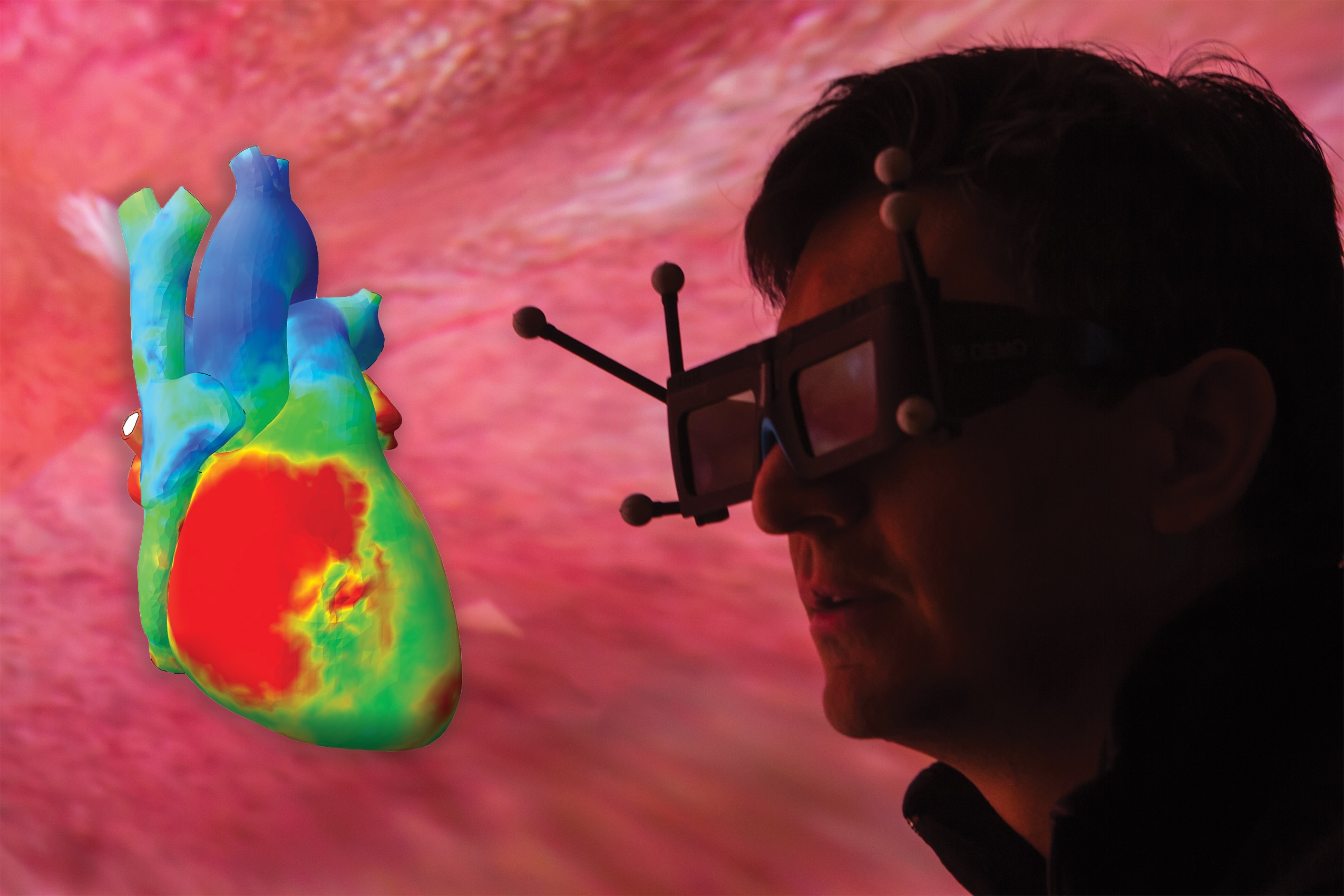As 95% of automobile crash tests are today carried out using virtual replicas, why not do the same with surgical operations? This is what convinced the Dassault Systèmes teams to apply their expertise in 3D design to the human body.
The Dassault Systèmes stand at the CES in Las Vegas was very popular, and with good reason − its Living Heart captured the imagination of the media and of course the scientific community. This digital twin replicates a number of cardiac characteristics and functions, not only due to its shape, but also the pump that beats in time to an electrical signal, thus simulating the fluid behavior of the heart.
This innovation could allow heart surgeons to reconstitute the pathology of their patient and see what would happen if an operation were to be carried out in this or that manner, in order to find the surgical strategy most suited to each patient. The experiment is already under way at the Boston Children’s Hospital in the USA, where the head of the children’s cardiac surgery department uses this tool to treat young patients suffering from congenital heart conditions.
As for manufacturers of medical devices, this technological support would help them to design valves or stents more quickly and with improved accuracy. Some manufacturers already use this digital twin routinely, at different stages of maturity, depending on the use cases.
This technological revolution is the result of a multidisciplinary collaboration not only with heart surgeons, but also manufacturers of medical devices, university researchers and regulatory specialists within the FDA.
A clinical trial in silico is under way in the USA, with the FDA, to carry out crash tests of this medical device with a cohort of virtual patients rather than actual patients, suffering from valve regurgitation failure. This virtual clinical trial is not aimed at totally replacing conventional clinical trials but rather improving the effectiveness of the medical device upstream to thus reduce the number of patients required for the final clinical trial. “Currently, none of the clinical trials are carried out virtually, we are in the process of changing this paradigm,”said Claire Biot, Vice President Life Sciences and Healthcare Industry at Dassault Systèmes.
“The aim of Dassault Systèmes, with these digital twins of the human body and the patient experience, is in fine, to improve healthy life expectancy at a sustainable cost for the health system. For practitioners, these new tools are used to standardize good medical practices. For the pharmaceutical industry and manufacturers of medical devices, this reduces the length of R&D and product cost, and has a positive impact on sustainable development by avoiding waste. Innovation reaches its public quicker,” Claire Biot, Vice President Life Sciences and Healthcare Industry at Dassault Systèmes.
A virtual twin of the brain targeting drug-resistant epilepsies has also been created. It could help to understand the propagation of the signal in the patient’s brain and to identify the zone that triggers the seizure, in order to reduce surgical operations to a minimum. It is currently undergoing clinical trials, in partnership with the Assistance publique – Hôpitaux de Marseille, as part of the Epinov project. Recruitment is already well under way.
The liver and lungs will be the next organs targeted by this technology, before finally a twin of the human body in its entirety is made.
The patient experience is also at the heart of Dassault Systèmes’ preoccupations. To help patients live with the disease, the environment in which they are treated will be reproduced, in collaboration with the Institut Hartmann, in Paris, one of the most advanced radiotherapy centers.
This collaboration between the Institute and the 3DEXPERIENCE Lab of Dassault Systèmes has led to the creation of a radiotherapy machine by Accuray that reconstitutes, via a virtual reality headset, the conditions of a radiotherapy session (the room, equipment, controls, noise,…) so that on D day, the patients are ready and less anxious. A clinical trial will start soon to quantify the impact of this technology on the patient’s experience. “The digital twin of the human body is necessary but not sufficient, the environment is essential,” said Claire Biot. “Both need to synergize to have the greatest impact on the final state of health of the individual.”
The manufacturer entered the healthcare sector fifteen years ago and “intends to profit from the legitimacy acquired in other areas for the benefit of this sector,” said Claire Biot. “The idea is to use simulation to anticipate the impacts that a product has on the market. This test offers a lot more possibilities than the real world and encourages collaboration.”
The acquisition of Medidata in 2019 for $5.8 billion gave Dassault Systèmes access to a large healthcare database, via a data collection and analysis platform for patients in clinical trials.
Aware that human “matter” is more complex, Dassault Systèmes, which specializes in 3D modeling is keen to fulfill the enormous needs that are not covered by the medical world − aging population, increase in chronic diseases, very unequal access to care, challenge of controlling healthcare system costs (that are growing twice as fast as GDP), while extending the healthy life expectancy of patients,…
Today, Dassault Systèmes is taking a long-term view and dreams of developing a platform over the next 10 years that encourages excellent medical practices, to “move from being small businesses to industrial practices,” said Claire Biot.



